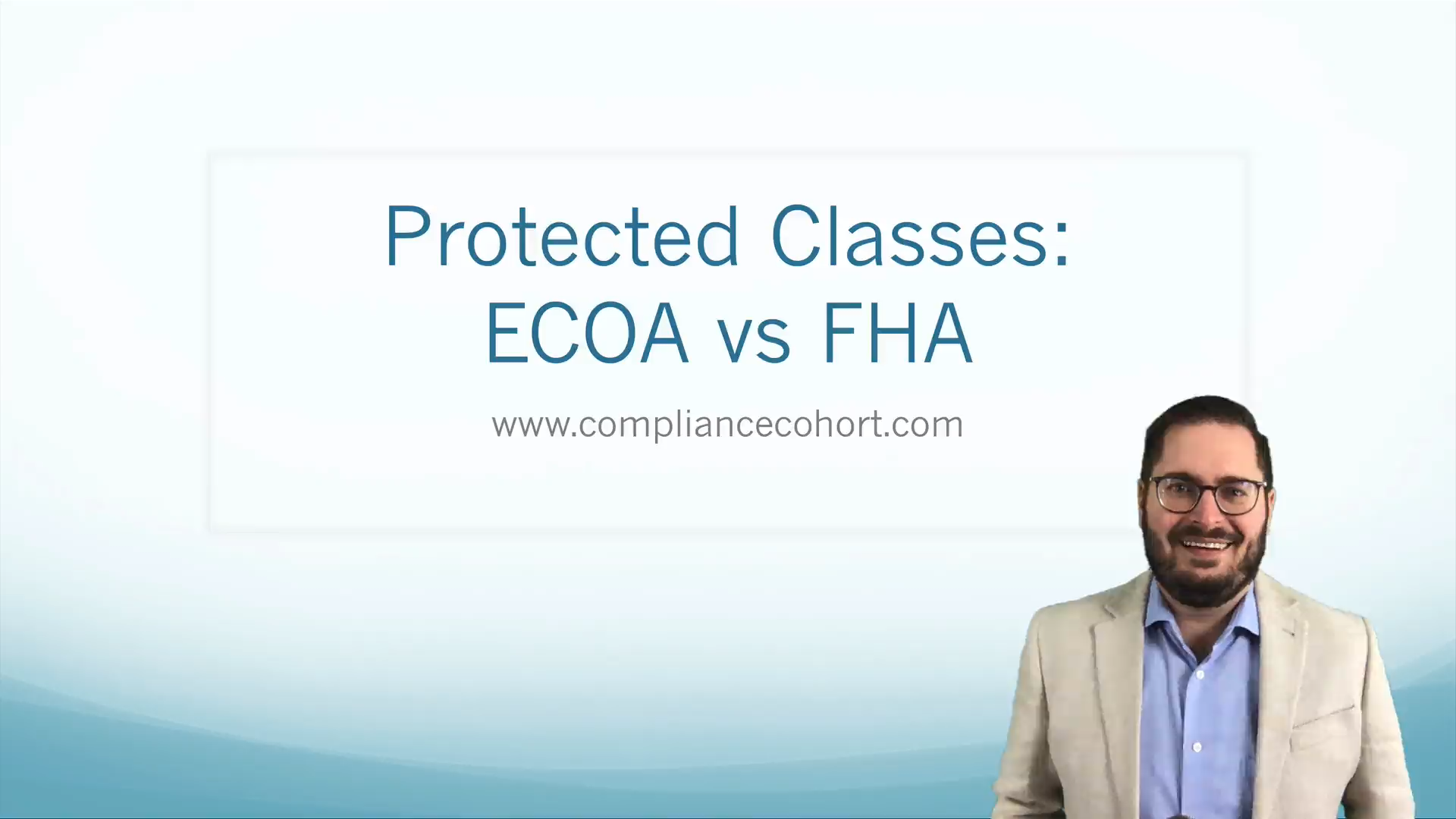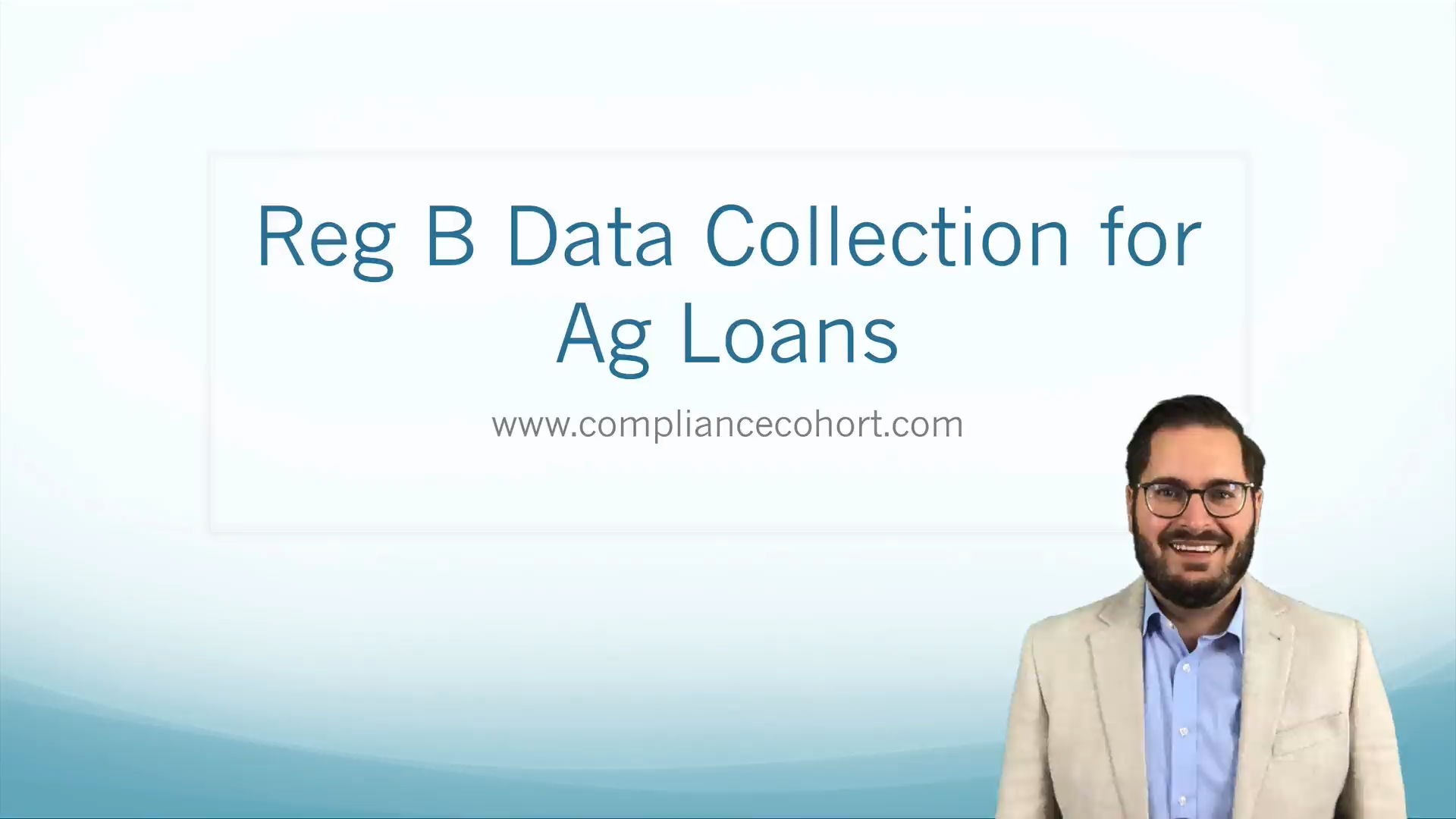On March 9, 2021, the CFPB issued an interpretive rule clarifying that the prohibition against sex discrimination under the Equal Credit Opportunity Act (ECOA) and Regulation B includes sexual orientation discrimination and gender identity discrimination.
Welcome to the Compliance Cohort. We are a group of compliance professionals working to make compliance easier. Our goal is to take complex compliance concepts and put them in simple terms that apply to the real world. We are glad you have found us and look forward to collaborating in the future.
If you haven't done so already, make sure you sign up for our free membership where you get access to many member-only videos, articles, and other resources.



